During the Three Moms of the Apocalypse podcast last night, there were three concepts that really caught in my memory, and I wanted to revisit them in writing. Two are, perhaps, subjects for their own essays on another day. They were Tactical Patience (courtesy of Spearman Burke) and Uncompromising Competence (from KC Ezell). The one I wanted to talk about today, as I have been dealing with it for the last few years off and on, and I see friends struggling with it now, is the idea of reigniting your inner fires.
Growing up, when the family went on vacation, we went camping. Dad was a junior NCO in the Air Force, and Mom had her hands full at home with my two sisters and I. We didn’t have a lot of money. So on vacation in Oregon, until Dad got out of the military, and then later in Alaska where we settled after he was free, we went gold prospecting (which usually paid for the vacations, but that’s not relevant to this essay). I grew up minding campfires, and in Alaska, wood stoves of various shapes, sizes, and dispositions. The domestic fire was a familiar friend. It was also, given that Dad spent time as a volunteer firefighter off and on through my entire childhood, and both he and many family members fought wildfires, something I knew to respect deeply.
When wilderness camping I learned how to bank a fire. You can take the word bank here in more than one way - banking as in putting away a valuable for later, or banking as in the sides of a creek that contain it and keep it from flooding out into the surrounding area, destroying as it goes. When you bank a fire, you put it to sleep, so you can rest, without completely quenching it. Covering it with thick ashes, or even dirt (dry!) will cause the coals and embers to smoulder, unable to burn off completely, and their energy is in reserve for when it’s needed later. Pull back the covering, allowing in air, and adding fuel, will bring the fire back to life again.
Firefighters (and arson investigators, but that’s a whole other story) talk about the fire triangle: oxygen, heat, and fuel. You need all three to have a fire. Deprive the fire of oxygen and fuel, but insulate the heat, and reignition is easy if it’s not left banked for too long or too deeply. The inner creative fires follow some of the same principles (like any metaphor, you can strain it if you stretch it too far).
Grief, stress, depression: they are all a heavy blanket over the inner flames. I can speak for myself and say that at multiple times in my life I have been certain my creative spark was quenched completely. And yet, when I came back to a point where I could breathe again, I found that there were still embers buried in the ashes of my life, waiting on me to coax them back into life. The flames licked up again as I fed them with reading, music, and contemplative times of thought. It’s not easy, and it’s not fast, but I think you’ll find that it is possible to rake that heavy covering off your heart and watch it come to life once more.
This isn’t to say that what emerges from the coals remaining will look the same as what once burned there before. I don’t know the mechanism for this, although it is interesting to contemplate. One of the friends who got me thinking about this commented that he had killed his desire to do art a decade ago, and recently found himself compelled to write (and has, in the meantime, gone through at least two very artistic phases I know of, but not in traditional media). He had banked his fire, but it found a way out again. Changed, yes, but there are things in our souls that cannot be denied.
Deliberately banking the imagination’s power sources doesn’t have to be negative and rooted in trauma, although it commonly is. It can also be done in a time of great stress, acknowledging that now there is no time and space for this, but we will return to it later, pulling back the ashes, and bring it back to life. Doing this with some small ceremony, as uniquely suits you, can make it easier when that time comes. You understand, in a way, that this is not death, only sleep.
We all have seasons in life where we need to rest. To lay down the burdens we can, often to take up other and greater burdens for a time. This can be for joyful reasons, like the birth of a child, moving to a new home, or for deeply painful ones, as the death of a loved one, or a divorce. Trying to maintain the fires of the creative soul through those seasons can be impossible. Banking the coals for later, rather than risking burnout, can help you survive and thrive when the season has passed.
We can do this the hard way, or the easy way. it is very difficult, when you have experienced complete burnout, to reignite the fire. You don’t have that base of heat to drive off the moisture from the morning dew on the wood you’ve collected. You have plenty of air, now, but the coals are gone and you shiver as you bend to your task, your fingers clumsy and stiff. It is much easier to ensure you still have embers to aid you in your renewal.
Even when you do pull back that ashy lid covering your heart of fire, you must fuel the beast, and you must give it air. Unlike fire, creativity and imagination demand more complex and ethereal inputs. Even more difficult, these are uniquely and specially yours, and only your own curiosity can find the way to them. I can only speak into mine, which are aided by long walks, reading books of all manner of topics and tales, exploring great artworks for the visual enrichment, and listening to music while giving my mind the freedom to roam. Prompts can help, and I see that working in many writers, poets, and artists. Giving yourself permission, and space, to create in is good as well. Setting small, measurable, achievable goals: like my Taco Tuesday stories, or daily wordcounts, or simply a Pomodoro timer where that’s the only thing you are allowed to do. If you do that, by the way, there will be days where you stare at the blank paper or page in front of you, with your mind equally blank. Do this long enough and suddenly you’ll be so bored you’ll find yourself creating out of spite. Go out and light a campfire, spend the evening staring into the flames, and you’ll see the legend of the salamander come to life in the movements deep in it’s heart.
Compete with yourself. Be accountable to others. Find an ambition, a dream, and then determine how to reach the pinnacle of that achievement. Don’t give up on yourself. You can rise from the ashes, and what’s more, you can do that again and again, as many times as you need. Bank the fire, and it will be there when you can come back to it.
What lights your fire?





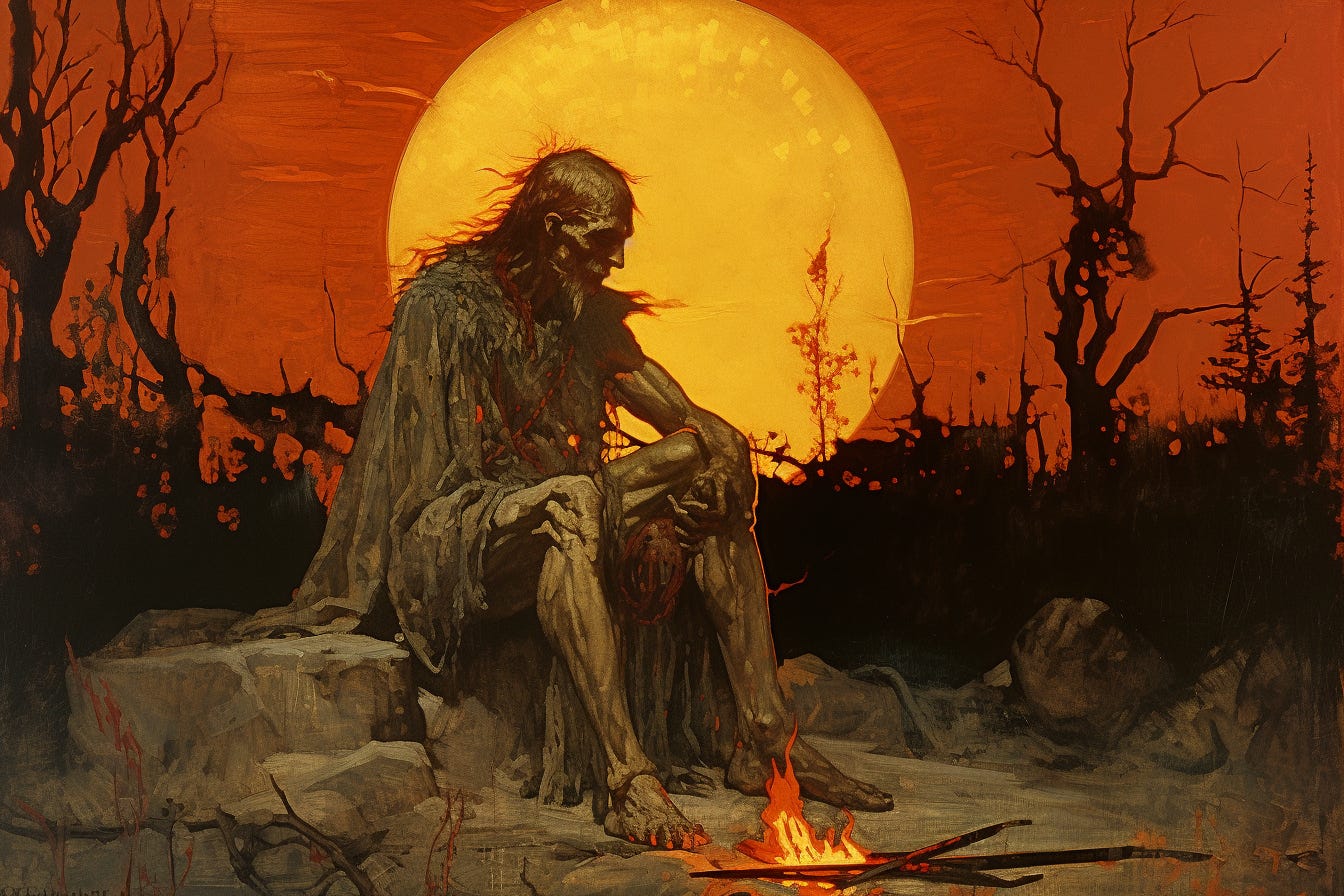
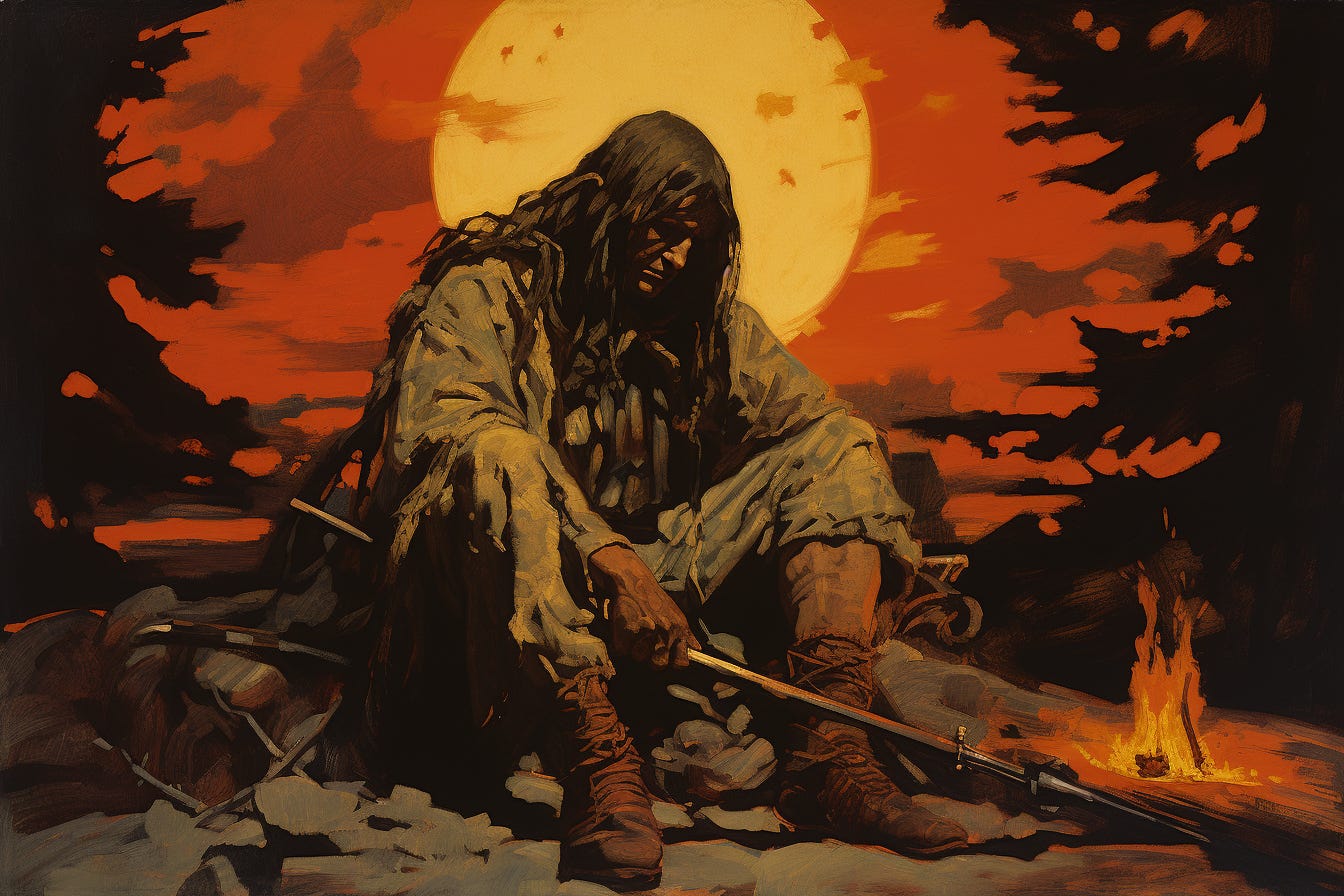
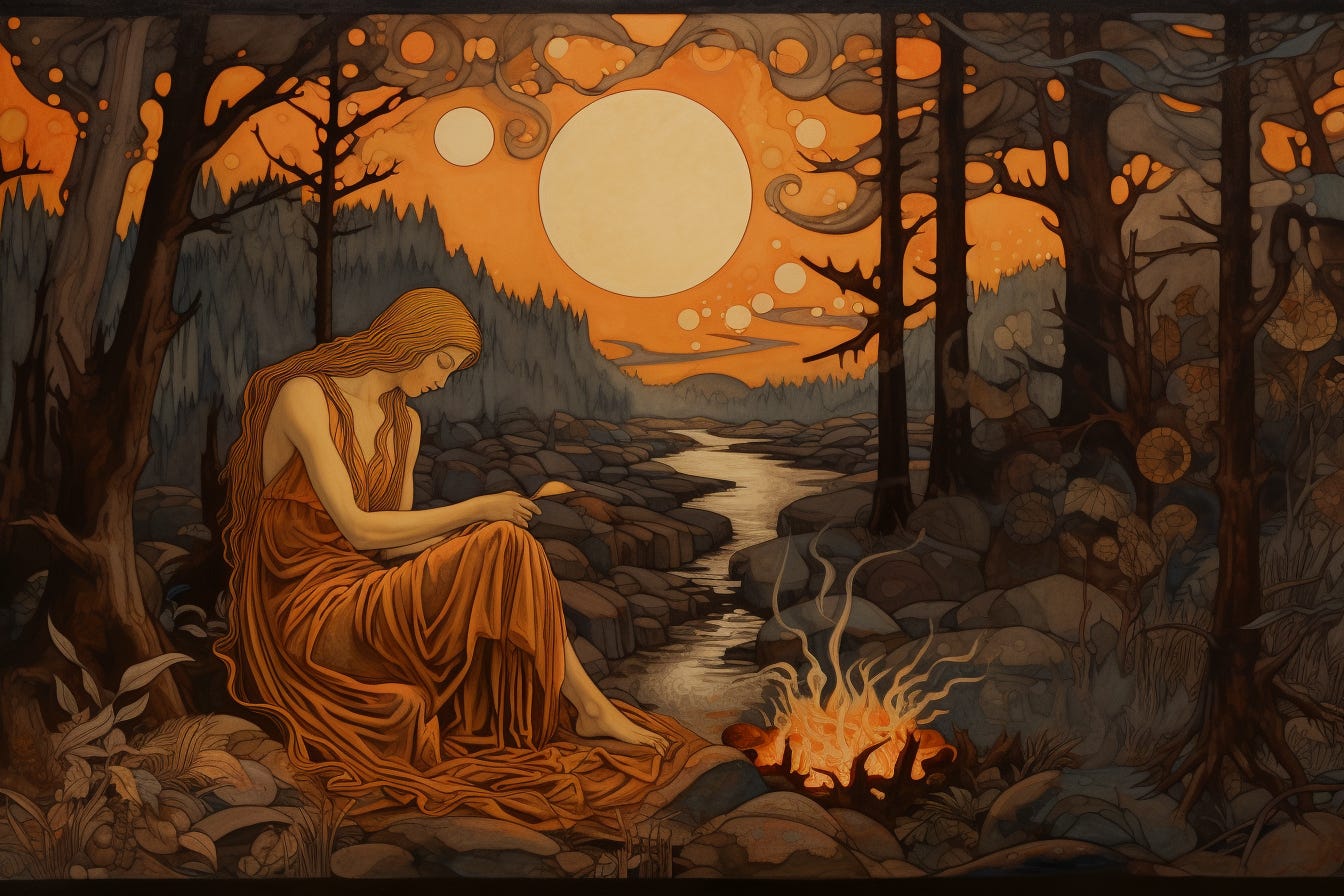

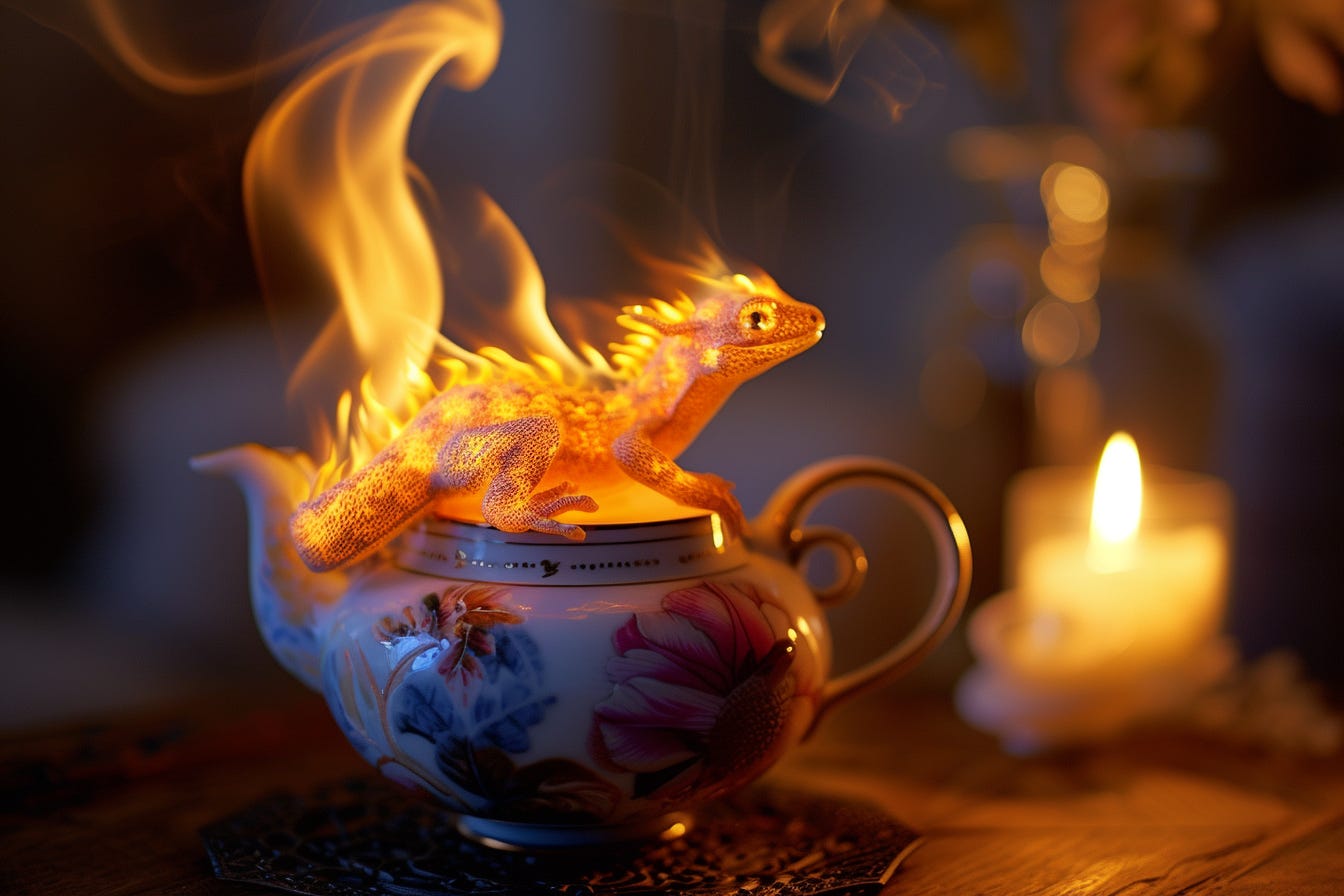
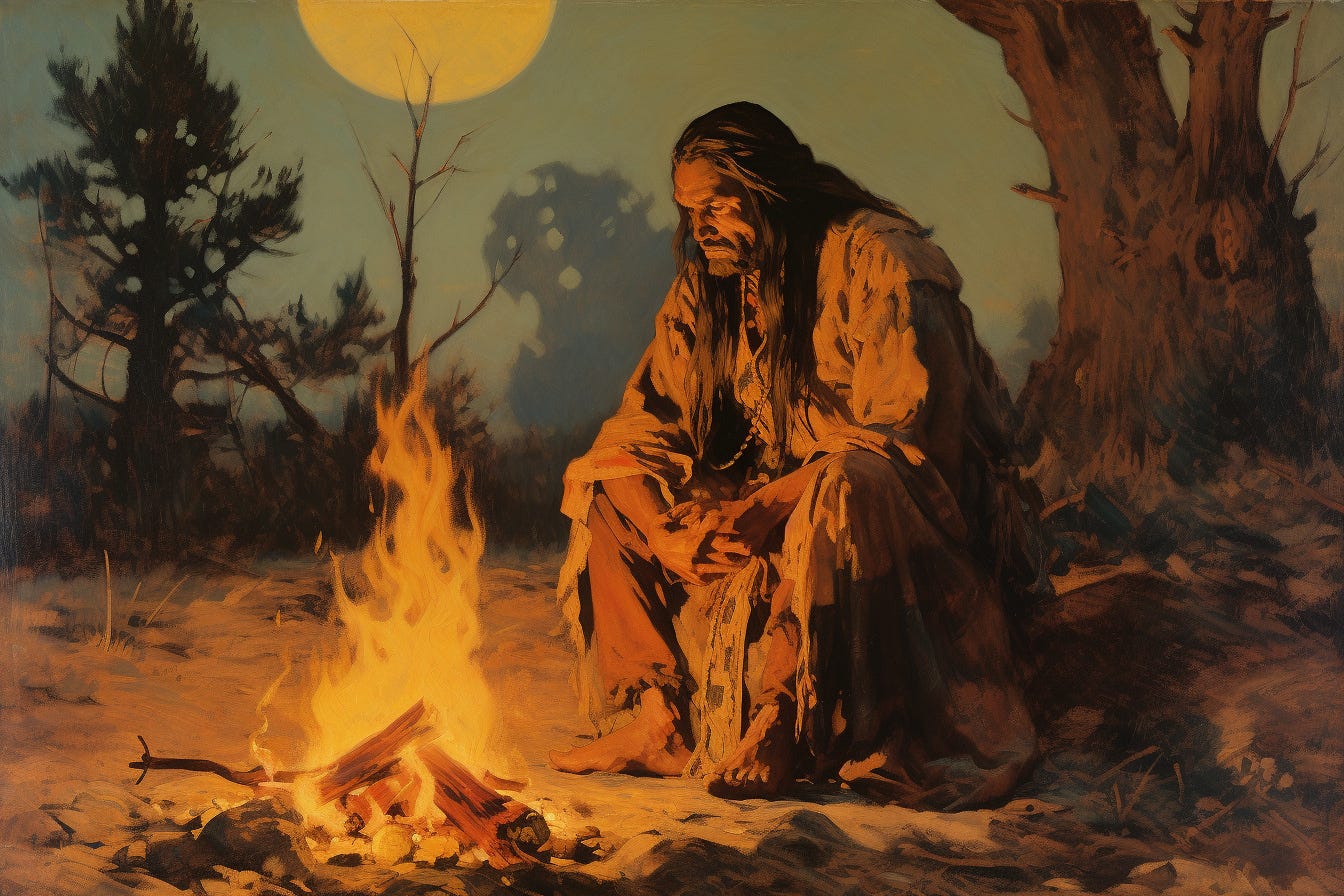

I used to hunt woodland caribou down around Sourdough in February. Daytime temperatures often -20°, night's -40°s. I remember once, only once, I left my bunny boots outside my sleeping bag, pulling them into the bag to warn them up a half hour or so before rising. I found , when I faced the day, how amazingly well insulated those boots are, even after half an hour warming them up the insides were cold enough to push me into hypothermia.
I spent some time fumbling trying to get a fire started. Finally I poured some gasoline on it (At -40° gasoline burns more like kerosene.) and basked in those beautiful flames bringing my core and extremities temperatures back to normal.
I know I'm stretching your metaphor a bit but sometimes you really need to be willing to throw a little gas on the fire.
I never really considered myself creative aside from occasional bursts at random times (school projects and such). I always wanted to be creative, but I had it in my head that it was simply a hobby. And it wasn't as if I didn't have great examples. One grandmother was a wonderful painter and musician, my mother loved and excelled at photography.
As for me, it's only been five years since I figured out that I can write and do it pretty well. I don't know if the fire was banked from those random bits in school, or if I managed to create a small flame that somehow maintained itself from then until now. Either way, I'm grateful I found it. And I'm grateful to you, Cedar, for helping me to fan those flames.